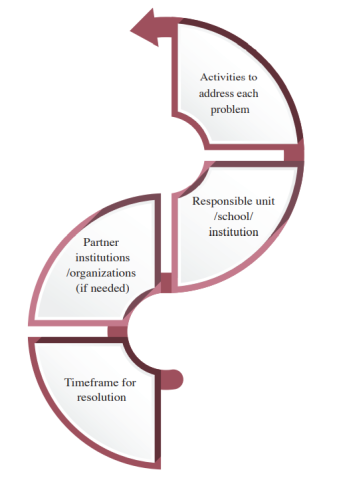Address
Milli Eğitim Bakanlığı, Strateji Geliştirme Başkanlığı
Türkiye Eurydice Ulusal Birimi , Merkez Bina 4.Kat
B-Blok Bakanlıklar
TR-06648, Ankara /TÜRKİYE
Tel:+90 312 413 1484
E-Mail:
Website:
Responsible Units
The guidance, on-the-job training, supervision, evaluation, research, and inspection services of adult education institutions affiliated with MoNE are carried out by Ministry Inspectors.
MoNE’s DGLL and DFPEI are responsible for adult education. The quality of adult education institutions affiliated with Directorate General of Lifelong Learning is evaluated through external assessments in accordance with the annual plans of the Inspection Board. During these inspections, all activities of public and private lifelong learning institutions are evaluated, and guidance is provided. At the end of each inspection, Ministry Inspectors prepare reports evaluating the institution’s activities. Based on these reports, institutions prepare development plans to address identified issues. The implementation of these plans is monitored by provincial/district directorates of national education. Evaluation of adult education institutions is guided by audit handbooks prepared by the Inspection Board.
Quality Assurance Methods and Approaches
Audit handbooks prepared by the Inspection Board are used in the evaluation of institutions affiliated with Directorate General of Lifelong Learning. These handbooks are published on the Inspection Board’s website. Their purpose is to guide inspectors, ensure consistency in institutional audits, prioritize areas needing improvement, and disseminate good practices. Legal regulations in force are considered during the audits. Issues not addressed in the audit guide are evaluated in accordance with relevant legislation. Inspections are conducted under four main headings: education and training environments, education and training activities, management activities, financial affairs and transactions.
Audit reports include descriptions of identified problems along with suggestions for resolution. In the development plans prepared by institutions based on the inspectors’ findings, each issue is addressed under headings similar to those listed in following figure. The progress of the school/institution in line with the plan is monitored by the provincial/district directorates of national education.

Figure: Key Areas Identified in Development Plans of Adult Education Providers
